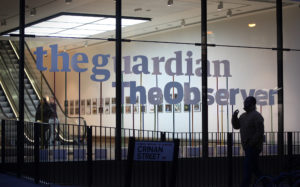Has a route to reparations finally been revealed? Last week, Cori Bush, the Democratic Congressman from Missouri, along with a group of other progressive lawmakers, unveiled the “Reparations NOW” resolution, which hopes to pay out $14 trillion to black Americans. Its recommendations echoed those of California’s state-approved Slavery Reparations Task Force, which this month proposed that $1 million should be paid to each applicant.
What constitutes a successful application, however, is not so clear. In a court of law, to claim compensation, you must show that you have suffered harm and associate it with a certain amount of money. Is this criteria met? The slaves who were transported to America obviously suffered harm. But they are not the plaintiffs here. Rather, their descendants — along with people who are not their descendants but who belong to the same racial group — are the complainants. Is there a case that they have suffered harm as a result of historic enslavement?
The American legal system has a useful “but for” concept for the determination of harm. Under this framework, you are culpable for damage suffered by someone else if “but for” your action, they would have been fine. For example, “but for” you allowing your dog off his leash, he would not have chased a squirrel and run into traffic, causing a car to swerve and hit a lamp post. What happens if we apply this methodology to the descendants of slaves? “But for” the transportation of their ancestors to the Americas, what would their circumstances be? Well, perhaps most obviously, they would still be living in sub-Saharan Africa. Would that be preferable to living in modern America? Have they suffered harm because they now live instead as citizens in the US?
These are speculative questions, obviously. Still, we must note that today, vast numbers of people from all corners of the world embark on dangerous and desperate journeys in hopes of reaching the United States for the chance to live and work. We need only look to the southern border, where families cross swirling rivers and scale barbed-wire fences with babies in their arms because America offers them a better life. Or at the shocking images of young Afghans clinging to American planes lifting off from Kabul airport in a suicidally hopeless effort to escape their country.
None of this justifies past slavery, and in these examples, the dangerous travel is undertaken voluntarily. What it does illustrate, however, is that the descendants of the trafficked individuals find themselves in a country that millions around the world would give anything to reach. Even citizens of prosperous Western Europe sign up for the Green Card Lottery. To be here, equipped with full citizenship, is not a bad circumstance.
To complete our thought experiment: what would life be like for today’s African Americans if their ancestors had not been taken to the Americas? Today, the blunt truth is that Africa is a mess, politically, socially and economically. Bloody wars and coups, as well as tribal and ethnic genocides, recur with regularity. Hunger remains prevalent, with malnutrition serving as an underlying factor in almost half of deaths among children. An estimated 98 million in Sub-Saharan Africa are not in school, instead scrounging a living on the margins of the economy. Every fifth child is engaged in forced labour, often in exhausting and dangerous conditions in factories or mines.
Meanwhile, 25.6 million Africans have Aids, and a half-million die of malaria every year. Almost 600 million of the continent’s residents have no access to electricity, with South Africa only the latest country to declare a state emergency following a series of blackouts. Women face particular miseries: 19 of the 20 countries in the world with the highest maternal mortality rates are in Africa. According to the World Health Organization: “Gender inequity, poverty among women, weak economic capacity, sexual and gender-based violence including female genital mutilation (FGM) are major impediments to the amelioration of women’s health in Africa.”
And yet, according to those calculating the value of African-American losses traceable to slavery, the “ultimate goal of reparations should be to restore the black community to the economic position it would have had if it had not been subjected to slavery and discrimination”. The problem with that is, had it not been for slavery, that community would not be here at all, and their economic position on their continent of origin would likely be inferior. This is to assume that the removal of 338,000 of its inhabitants made little difference to Africa’s future. But even so, would life there be better than modern America?
Unable to address this question, one wing of the reparations lobby is proposing a “right-to-return-to-Africa” programme. This idea pre-dates the end of the Civil War, when it was championed both by abolitionists who thought it was the best way to undo the damage of the slave trade and, ironically, by die-hard Southerners who felt that a population of resentful emancipated slaves would be a social burden and should be encouraged to leave. Several state legislatures set aside funding for reverse colonies to be established in various African nations, but there were few takers. Such reluctance was wise, as almost half of the initial returnees soon perished from tropical diseases, principally malaria.
Moreover, the indigenous inhabitants and neighbours were less than welcoming of their returning brothers and sisters; indeed, they were distinctly hostile. Perhaps the most lasting of these experiments was Liberia, whose name derived from the Latin word liber, meaning free. There, the return-migrants managed to achieve dominance for a time, but in 1980, they were toppled. Since then, chaos has reigned, and at least a quarter of a million people have been killed in the bloody process.
Here, it is noteworthy that contemporary anti-racist activists, including Frederick Douglass, himself a former slave, vehemently opposed the concept of repatriation. “We live here — have lived here — have a right to live here, and mean to live here,” Douglass stated categorically. Perhaps he could have added: and we mean to leave trauma behind us and live well. For let’s not forget: many African Americans have done just that. The African-American middle class is almost exactly the same size proportionally as their white counterpart. It’s a huge disservice to them, and to the country, to portray this part of our population as failed social and mental wrecks requiring therapeutic cash.
This is not to say that the situation is hopeless or that the descendants of slaves just need to get a grip. Although some have attained wealth and many have entered the middle class, there clearly is a large segment that has suffered from little upward mobility. But apologies and one-time windfalls won’t help; this requires frank and serious analysis, actual plans and study of other models.
A good place to start would be a review of the strategies of other minorities, such as Asian Americans, and their uncomfortable decision to live in cramped multi-generation units that allowed them to afford housing in middle-class neighbourhoods with better schools and a safer environment. Or one could study models such as that of Singapore, where a multi-ethnic population of hostile communities mired in unemployment, poverty and mutual dislike was forged into a prosperous nation within just a few decades. It means looking at the military, where young men from minority backgrounds thrive and rise in the ranks — America’s most senior two leaders are currently African-American generals.
Calls for reparations may attract headlines, but that doesn’t mean they will succeed. Though dangling the chance of a lottery win may be a clever vote-winning trick for unscrupulous politicians, that doesn’t make it good politics.
Disclaimer
Some of the posts we share are controversial and we do not necessarily agree with them in the whole extend. Sometimes we agree with the content or part of it but we do not agree with the narration or language. Nevertheless we find them somehow interesting, valuable and/or informative or we share them, because we strongly believe in freedom of speech, free press and journalism. We strongly encourage you to have a critical approach to all the content, do your own research and analysis to build your own opinion.
We would be glad to have your feedback.
Source: UnHerd Read the original article here: https://unherd.com/



